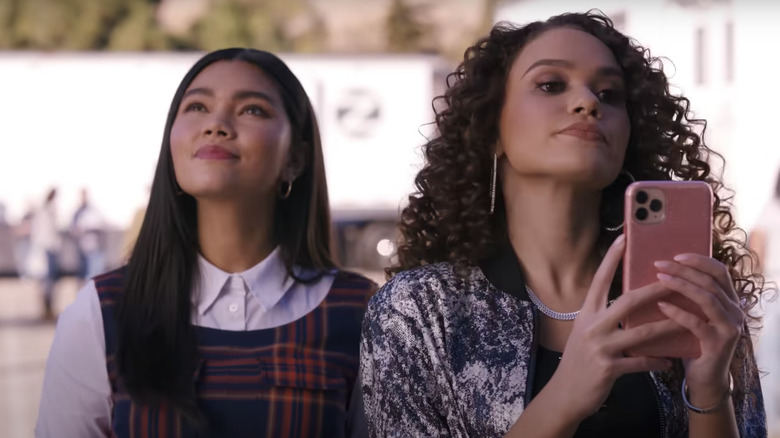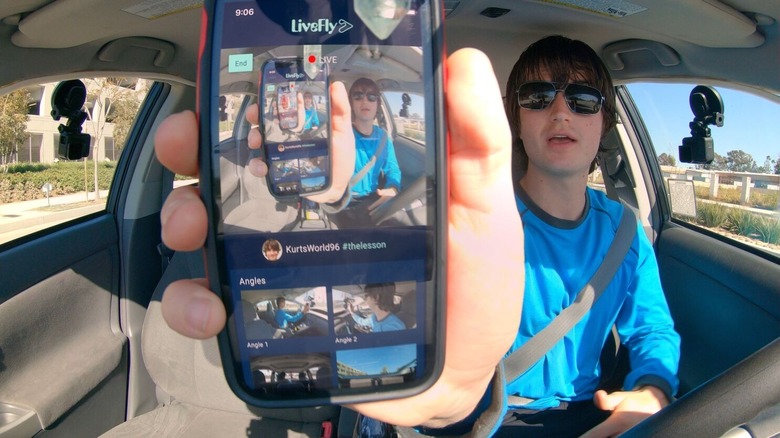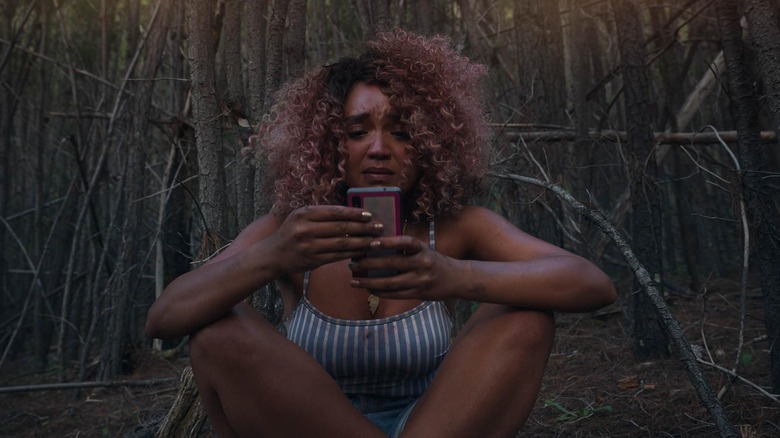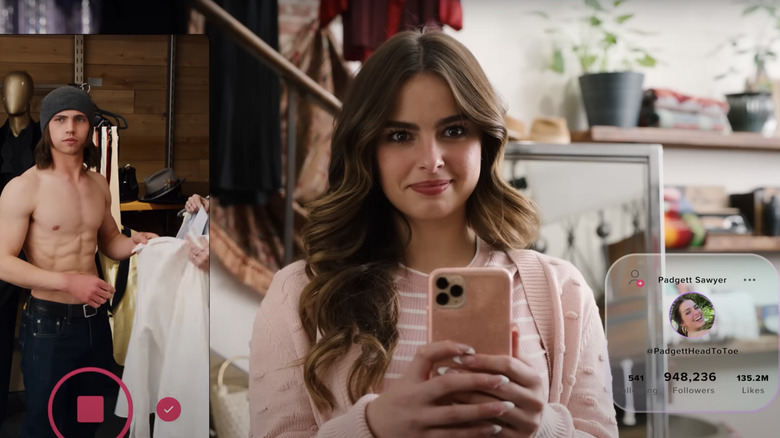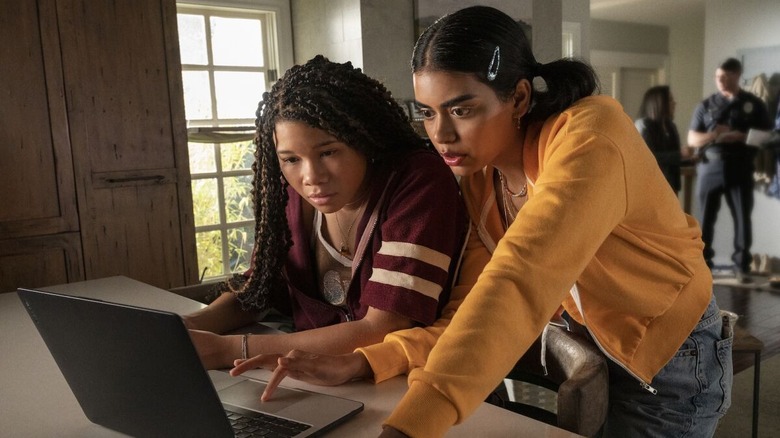TikTok Has Broken Hollywood And No One Knows What To Do About It
The entertainment industry is in a weird spot right now. Streamers and studios keep purging exclusive material that hasn't made the jump to physical media, seemingly intentionally creating a new library of lost media in favor of tax write-downs. The AMPTP has forced a dual strike between the WGA and SAG-AFTRA, effectively shutting down the industry and already making a huge dent in box office performances. Streamers and studios are definitely feeling the hurt and looking to make money in whatever way they can, which includes smacking users on social media with Digital Millennium Copyright Act (DMCA) takedowns, an attempt to prevent anyone from unofficially using copyrighted material that doesn't belong to them. The fear is not just that people could be leaking footage ahead of release, but that providing the clips for free online will hurt the studio's bottom line or allow a non-involved person to profit off of sharing the shows, movies, or music.
People have been known to get slapped with a DMCA takedown for making a YouTube video or posting a self-filmed video to Twitter/Facebook while an episode of "The Office" plays on the TV or a song plays on the radio in the background. And yet, if you spend even a tiny bit of time on TikTok, you're likely to come across accounts uploading full episodes of TV shows or live-streaming movies from inside of a theater ... and no one seems to care! I want to make it clear that this isn't a "You Wouldn't Download a Car" PSA against TikTok, but with the entire industry at a crossroads and huge changes to how entertainment is made, distributed, and consumed on the horizon, we need to talk about the social media app that no one (including the U.S. Government) knows how to handle.
Watch your new favorite shows and movies in 3-10 minute chunks!
Remember when YouTube was in its infancy and people would upload movies and TV shows in 10-minute chunks because the average home computer wasn't strong enough to upload feature-length programming just yet? Or when people continued the practice in an attempt to get around copyright striking? While that certainly still happens on the site, it's nowhere near as rampant as it is on TikTok, where users are known to upload feature films and episodes of television in 3-10 minute increments. The internet thrives on communal plagiarism, but considering the money left on the table when people are bootlegging, studios tend to crack down on the practice as much as they can.
That's certainly not the case on TikTok, where I have admittedly seen full episodes of TLC's "My Strange Addiction" or Max's "And Just Like That..." uploaded alongside videos of people squishing slime or playing the Subway Surfers. Because movies and TV shows are filmed in landscape/horizontal as opposed to TikTok's portrait/vertical mode, users fill the screen with additional videos or font on black letterboxing to fix the view. The former is a form of what is known as visual tactility, a relatively new phenomenon that appeases short attention spans while preventing users from scrolling to a new video because they can just look down at a different panel for new visual stimuli, which helps with viewer retention.
There's an argument that could be made that these videos serve as free promotion and will inspire viewers to track down shows and movies through respective, legal channels, but that's some seriously wishful thinking. What incentive is there if audiences are already consuming the media for free? Seems that there's finally a non-misogynistic way to give prudence to the idiom "Why buy the cow when you can get the milk for free?"
The fine line between promotion and exploitation
To make matters even more complicated, some studios and streamers have started releasing their own projects in the same format on the app. For example, Peacock has made available the first episode of Craig Robinson's "Killing It" on the app in 10-minute chunks, as well as an episode of "Love Island: USA." Important to note: First-episode previews are often released on YouTube or social media, and it could very well be in some staff's contracts as acceptable promotional material. At the same time, it doesn't seem to be super common, as WGA Strike Captain Caroline Renard pointed out on Twitter, "Hmmmm. Are we accounting for whole-ass episodes of TV being uploaded on TikTok and Twitter in our contracts now? Cause remember when Apple dropped the entire first episode of 'Silo' on here[?]"
I completely understand why a studio would release the first episode for free to try and lure in new viewers because it's the same reason why drug lords give away product to get folks hooked on the stuff. The problem is that if a studio or streamer uploads episodes on TikTok in the same manner as people illegally uploading material they do not have the rights to, it's going to cause additional confusion while media literacy is already in the crapper. "I watched that on TikTok" is already becoming part of the burgeoning common teen vernacular, an indication that if viewers are given the option to watch things on TikTok instead of streaming or in theaters, they're going to do it.
Of course, I'm not here to generalize and there are plenty of people who do see the preview material on TikTok and immediately boot up a streamer to watch the full series or movie as intended, but it feels like we're at the precipice of the next step in the evolution of how we consume media. If we don't dedicate the time to following these trends and behaviors, they're going to pass us by and we'll be busy playing catch-up, instead of being prepared.
Theatrical releases make bank ... for users on TikTok Live
Much has been discussed regarding the financial success of Barbenheimer weekend, which saw a flood of people heading to the movies in record-breaking numbers. It was an exciting moment culturally, but for some screenings, a painful reminder that the quarantine era of the pandemic has left some folks a little socially ... stunted in terms of theater etiquette. Social media was flooded with complaints from frustrated viewers annoyed at how many fellow theatergoers refused to get off of their phones, and it sparked days of online discourse surrounding the topic. One of the most common complaints was noticing how many people were scrolling TikTok on their phones while in the theater, but this is by no means the most egregious use of the app in theaters.
If you're not an active user on TikTok, or if your algorithm is keeping you on the "cute dog videos" side of the app, you might not know that the TikTok Live feature is a hotbed of people livestreaming new theatrical releases. People aren't just filming screens from their phones and uploading them to YouTube in garbage quality anymore, they're streaming movies in real-time, and monetizing it. TikTok Live has something called "Gifts" which allows creators to earn "diamonds," the name for the app's virtual currency. These diamonds can be traded for real-life cash and are earned through viewers "gifting" them by sending emojis and reactions during the video.
So if a viewer was streaming a movie like "Barbie," for example, they could encourage viewers to send a gift of a rose or lipstick kiss whenever a joke makes them laugh. Sure, the image quality probably isn't that great, but tapping the screen to deliver the equivalent of 10 cents every so often is still cheaper than a movie ticket.
But this means that the TikTok Live streamer is pocketing all of those gifts, and the people behind the actual movie playing (or the theater screening it) don't see a dime.
How do we fix it?
The takeaway from this piece should not be "TikTok is bad and we should ban it," nor should it be some "Old Man Yells at Cloud" manifesto about my problems with the "youths" of today. Because Gen Z didn't wake up with some genetic predisposition to consume media in this way, it's how they have been taught and shaped by the powers that be. There's a fear that if streamers keep removing properties that "don't immediately perform well," the very concept of a cult classic will disappear. Keep in mind, this is a fear that only exists for people who were molded and shaped by discovering cult classics and is not as much of a priority for people who have been algorithmically spoon-fed since a parent popped an iPad in their lap and walked away. Lest we forget, the iPad came out in 2010, so the oldest generation of "iPad babies" are now in junior high and high school.
I don't think that this is an irreversible problem, but it's one that requires educating people on things like theater etiquette and responsible media consumption. Common sense isn't common, and much of the frustration from us cinephile oldheads is because we assume that "these kids know better," but in many cases ... they don't. They have no problem watching stolen content because most people think all working writers and actors are millionaires and have only recently been radicalized by the transparency of the WGA and SAG-AFTRA strikes. It's also difficult to tell people not to bootleg when studios and streamers are constantly pulling shows and movies offline as a tax write-down, so those in power are going to need to get it together or accept that people are now incentivized to pirate.
And maybe, just maybe, someone should buy the Quibi library and officially release and monetize it on TikTok to see how it performs. Perhaps there has been an avenue for these shows all along, and the only mistake was not bringing it to an existing platform that demands bite-sized "content."
